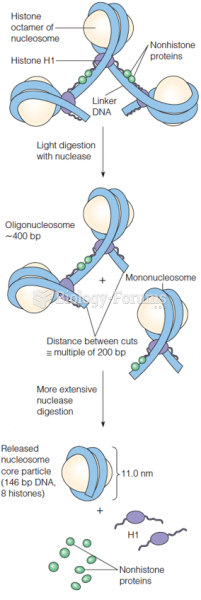|
|
|
Intradermal injections are somewhat difficult to correctly administer because the skin layers are so thin that it is easy to accidentally punch through to the deeper subcutaneous layer.
Thyroid conditions cause a higher risk of fibromyalgia and chronic fatigue syndrome.
Hyperthyroidism leads to an increased rate of metabolism and affects about 1% of women but only 0.1% of men. For most people, this increased metabolic rate causes the thyroid gland to become enlarged (known as a goiter).
In 1864, the first barbiturate (barbituric acid) was synthesized.
The Food and Drug Administration has approved Risperdal, an adult antipsychotic drug, for the symptomatic treatment of irritability in children and adolescents with autism. The approval is the first for the use of a drug to treat behaviors associated with autism in children. These behaviors are included under the general heading of irritability and include aggression, deliberate self-injury, and temper tantrums.
 Formed elements of blood: erythrocytes, leukocytes (neutrophils, eosinophils, basophils, lymphocytes
Formed elements of blood: erythrocytes, leukocytes (neutrophils, eosinophils, basophils, lymphocytes
 The National Organization for Women holds a rally in Illinois for the Equal Rights Amendment. In ...
The National Organization for Women holds a rally in Illinois for the Equal Rights Amendment. In ...





